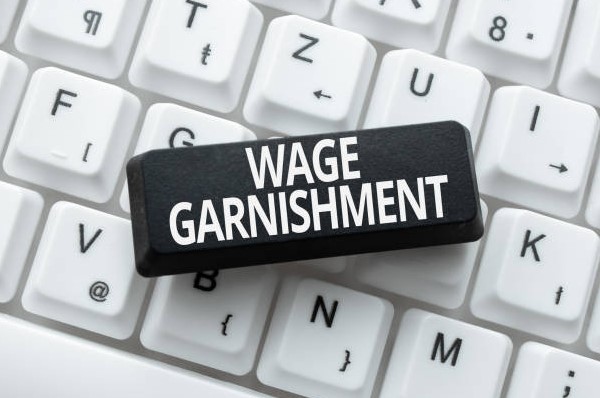Did you know that the American household debt totaled $16.9 trillion by the end of last year? While not all of that debt becomes problematic, having too much debt can lead to debtors pursuing legal actions, such as wage garnishment.
This is when you might want to consult with a wage garnishment attorney. Attorneys specialize in assisting clients who are facing wage garnishment and will act as another means of protecting your money from being taken.
Keep reading to learn more about why you need a wage garnishment attorney.
What is Wage Garnishment?
Wage garnishment is a legal action taken by a creditor to reduce the amount of money owed by a debtor by withholding a portion of the debtor’s paycheck each pay period. In most states, creditors must receive a garnishment order issued by a court, which specifies the amount to be deducted each period.
Usually, creditors have the right to take up to 25 percent of the debtor’s net income. The garnished amount is usually applied to the debt owed.
Wage garnishment is usually enforced for unpaid student loans, unpaid taxes, child support, and other court-ordered payments. In general, however, the creditor must receive a court order in order to garnish wages. This is a measure of enforcement to ensure that debtors can no longer avoid paying the balances they owe— thus offering creditors some level of protection.
Types of Wage Garnishment
There are four main types of wage garnishment, which include voluntary wage withholding, court-ordered deduction, federal tax levies, and child support deductions. To learn more about them, read on for a detailed explanation:
Voluntary Wage Withholding
Voluntary wage withholding is an arrangement between an employee and an employer that allows the employer to make regular deductions from the employee’s salary. This type of wage garnishment is typically agreed upon in writing by both parties and is used to make regularly scheduled payments such as taxes.
An employer may also use voluntary wage withholding in situations where an employee agrees to make repayment arrangements to pay off an outstanding debt. The employer can make the deductions directly from the employee’s paycheck, thus removing the hassle of making payments and improving the likelihood of the employee being able to stay current on the account.
This type of wage garnishment is completely voluntary. The employer cannot take the money without the employee’s consent.
Court-Ordered Deduction
Court-ordered deductions are the types of wage garnishments whereby debtors are liable to pay a certain portion of their wages to their creditors to satisfy long overdue dues. These deductions are appended when debtors are not able to pay their obligations in time. The amount to be deducted is decided by the court, and creditors must comply with such a ruling in order to get their money.
In cases where creditors fail to meet the court’s requirement, the court then issues enforcement orders allowing the court’s appointed officers to make the deduction. The most common types of court-ordered deductions include mortgage payments, support payments, alimony payments, student loan repayments, IRS payments, and more.
The wages of the debtor are deducted until the debt is completely paid off.
Federal Tax Levies
A federal tax levy is a legal means for the IRS to seize assets, such as wages or bank accounts, in order to satisfy the unpaid tax debt. There are three main types of wage garnishment that the IRS can use to collect funds when they have issued a federal tax levy.
The first type is a continuing levy, which involves the IRS instructing an employer to withhold a portion of an employee’s wages each pay period until the debt is repaid. The second type is a levy on specific wages, which involves the IRS notifying an employer to pay a specific amount of wages directly to the IRS.
Lastly, the third type is a bank levy. This requires a financial institution, such as a bank or credit union, to pay funds from an employee’s account directly to the IRS, up to the total balance of the employee’s account.
Regardless of the type of levy that has been issued, it is important for both the employee and employer to understand the legal requirements. This will help successfully pay off any outstanding tax debt and to achieve IRS wage garnishment release.
Child Support Deductions
The most common type of wage garnishment in relation to child support deductions is known as continuous wage garnishment. In these instances, a portion of a parent’s wages needed for child support is automatically deducted from each paycheck. This, along with filing payments to the court, is often one of the major steps a court takes to ensure a parent pays the required amount of money for their child or children.
A second type of wage garnishment is known as one-time wage garnishment and is when a single payment is deducted from a paycheck at one time. This type of wage garnishment is seen when a parent is delinquent in payments and the court steps in to collect the delinquent amount.
Both of these types of wage garnishment are used to protect the best interests of the child or children. They ensure that the parent is fulfilling their financial obligations.
Administrative Wage Garnishment
This type of wage garnishment is done by the creditor filing a written request to the debtor’s employer, outlining the amount to be taken from wages and outlining how much money will be held and redistributed. This type of wage garnishment is often used when other attempts at debt collection, such as letters or phone calls, fail.
This process can occur without court action, however, the debtor is legally allowed to make objections or to request a hearing. The employer must then cease garnishment without delay upon receiving a copy of the objection.
Administrative wage garnishment can help creditors to recover debts quickly. However, limits are in place to help protect debtors end to ensure that they will still have enough money to provide for their basic needs.
What is a Wage Garnishment Attorney?
A wage garnishment lawyer is a law professional that specializes in helping individuals who are struggling with wage garnishment. They can help individuals step through the legal process and understand their rights.
For example, a wage garnishment attorney can inform the individual of the amount that can legally be garnished. They can dispute the garnishment and provide insight into any additional resources that may be available.

A wage garnishment attorney can also provide assistance with filing proceedings to stop the garnishment and negotiating a payment plan with creditors. Ultimately, using the expertise of a wage garnishment attorney can help individuals avoid financial distress and protect their credit.
Do you Need a Wage Garnishment Attorney?
The short answer is yes. But below are a number of ways that an attorney might help you:
To Help you Avoid Garnishment Altogether
A wage garnishment attorney can help you avoid garnishment altogether by providing legal oversight and guidance throughout your financial situation. They can help review your case and provide possible solutions that may not require garnishment in the first place.
From negotiating with creditors to reviewing your employment contracts, they can help to ensure that you don’t experience disastrous financial repercussions. You will receive the best outcome possible.
Wage garnishments can be emotionally and financially crippling, so a wage garnishment attorney can provide invaluable guidance that helps protect you from ending up in an even worse financial situation. Additionally, they will encourage you to start considering your options and make sure you know about the rights you have in regard to wage garnishments.
To Help you Sort Through Your Debt Relief Options
Your attorney can help you sort through your debt relief options and provide legal advice on how to best proceed. Your attorney can also help you determine if filing for bankruptcy is your best option and work with you throughout the process.
The attorney can represent you in court, and help you successfully negotiate with creditors. They can offer advice on creating a budget that suits your financial situation.
Lastly, an attorney can ensure that all of your rights and possessions are protected throughout the entire process. Wage garnishment attorneys can provide invaluable assistance and guidance over the course of your debt relief journey.
To Avoid Termination
If your employer is threatening to terminate your employment because you are behind on your payments, you may need to take immediate action. Hiring a wage garnishment attorney is key to protecting your rights and preventing potential mistakes in the court process.
An attorney can help you navigate the legal system and understand the complexities of wage garnishment, ensuring that you remain compliant with all applicable laws and regulations. Plus, the attorney will be able to provide important advice and guidance to ensure that your rights are protected throughout the termination process and that you receive the most advantageous outcome.
Most importantly, communication between you and your attorney ensures that you are aware of any potential risks involved in responding to your employer’s demand for payment. It will help you avoid any potential legal complications.
To Help you Through the Bankruptcy Process
Having an attorney on your side can greatly increase your chances of success as they are widely experienced in navigating the complexities of filing for bankruptcy. They can provide assistance in setting up and calculating asset claims and important paperwork required for the court to review.
Moreover, the attorney can make sure your case is being handled correctly and swiftly and that all deadlines are met. They can provide an experienced evaluation of any outstanding debt you may be facing to make sure it is within legal limits. They can also help negotiate for more favorable repayment terms so that you do not have to pay an amount you are unable to afford.
Ultimately, the attorney can be your confidante and guide when facing the overwhelming aspects of filing for bankruptcy so that you can focus on reaching a successful outcome.
To Stop the Creditor from Taking Too Much
After a judgment has been made in a creditor’s favor, they can gain the right to take a portion of your income directly from your paycheck. To stop the creditor from taking too much and potentially destabilizing your financial security, you need a wage garnishment attorney.
They will be able to explain to the court the details of your financial situation, such as any medical expenses, student loan debt, etc., that are preventing you from fully paying your creditors. A wage garnishment attorney can also use the legal system to negotiate a more suitable payment plan that works for both you and the creditor.
Furthermore, they may be able to gain relief from the garnishment for a period of time or possibly even change the payment plan you had initially put into place. A wage garnishment attorney is a powerful tool if you are having trouble paying your debts. They can help you protect your financial security and find a payment plan that works for everyone.
To Help you Defend Your Rights
A wage garnishment attorney can help you review state laws, negotiate with the creditor and explain any applicable exemptions that you may qualify for. They understand the legal and financial implications of wage garnishment and can provide advice on how to handle it.
Additionally, they can also work with you and your creditors to create a payment plan that fits your budget. They will act as your advocate and provide valuable advice on how to proceed.
Hire a Wage Garnishment Attorney Now!
A wage garnishment attorney can provide the best advice and assistance needed to help you protect your wages. Paying an attorney may be expensive, but the cost of not pursuing a wage garnishment case could be even more costly.




